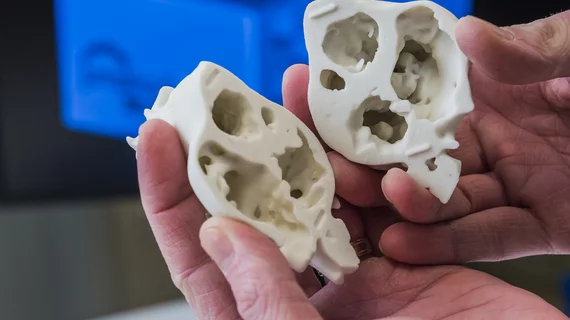Radiologist pinpoints where cardiac 3D imaging needs improvement
The widespread adoption of 3D printing has come to a standstill due to a lack of supporting evidence and high costs according to Frank J. Rybicki, MD, PhD, radiologist and chief of medical imaging at The Ottawa Hospital in Ontario, Canada, who expressed his concern for the novel technology at the American Heart Association’s 2018 Scientific Sessions in Chicago according to a report by Cardiovascular Business.
At the meeting, Rybicki said cardiovascular 3D printing can play an invaluable role in treatment planning, however the fact that there fails to be an industry standard for technology altogether diminishes this possibility.
“If physicians want to print at their hospitals, they’ll be subject to rigid regulations on behalf of the FDA,” according to CVB. “Approaching individual manufacturers themselves won’t work, either—those manufacturers are also heavily regulated by the government, and it will likely be difficult for cardiologists to get their hands on a unique model, device or valve.”
For physicians to successfully use 3D printing in cardiovascular settings, Rybicki said there needs to be made more in-depth recommendations, multicenter trials, registries and most importantly, human resource standards such as training for technologists and programs for staff and residents to enhance creativity alongside using the technology.
“We’d better make some rules,” he said according to CVB. “Because otherwise, you can have willy-nilly 3D printing. Anything can actually happen. You can 3D print off your iPhone if you have the right hook-ups, right? But we don’t want that. We want to do really high-quality work.”
See the entire article below.

